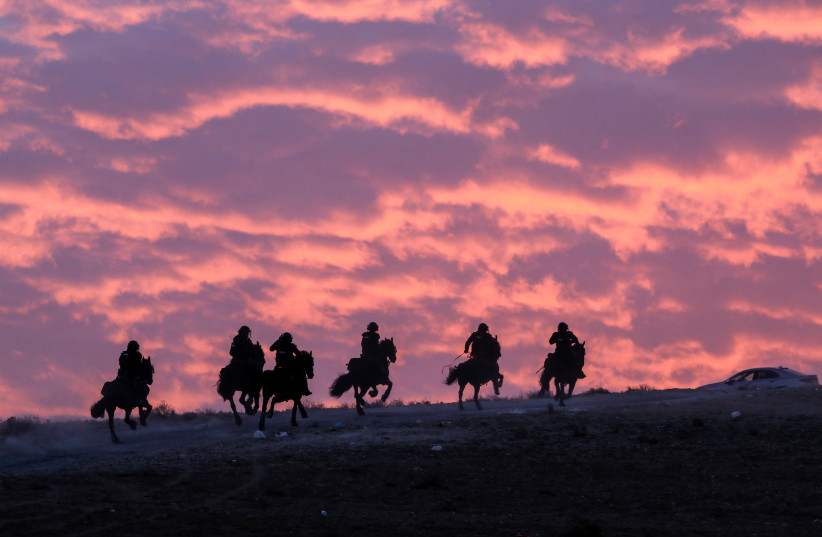One would think that planting trees, especially in Israel, is an ecological enterprise that all should welcome. Except in Israel, as is often the case, how, where and when you do it can turn almost anything into an explosive political issue.
Keren Kayemeth LeIsrael-Jewish National Fund (KKL-JNF) on Wednesday concluded three days of a forestation project on state-owned land at Sawa in the Negev. The tree-planting angered the local Bedouin community and Arab parties so much that it sparked violent clashes and threatened the stability of the government.
Tensions eased when the government announced that future work by KKL-JNF in the Negev would be negotiated with its coalition partners after Welfare Minister Meir Cohen, who is the government’s point person on unrecognized Bedouin villages in the Negev, mediated a deal between the sides to hold discussions in an effort to reach a compromise.
It’s a classic case study of competing narratives from which all sides can learn a lesson. On the one hand, Israel has every right to exert its sovereignty within its territory, conduct forestation projects and plant trees wherever it wants on state land – including the Negev. On the other, the local Bedouin communities see the tree-planting on land they use for farming as part of an ongoing government campaign to expel them from their unrecognized homes. It’s the government’s job to negotiate a path between the two.
Wednesday witnessed the third day of violent clashes between police and Bedouin youth protesting the forestation work, with five officers lightly injured in rock-throwing and a total of 40 rioters arrested for disturbing public order.

Ra’am leader Mansour Abbas, who garnered many votes from the Bedouin sector in the South, triggered a crisis in the 61-member coalition when he announced that his four Knesset members would not vote with the government until the matter was resolved.
In response, Yamina MK Nir Orbach said if Ra’am boycotted, he would not attend plenum votes either. Yamina and New Hope campaigned on the promise of clamping down on lawlessness in the Negev.
Meanwhile, a political delegation from the Likud visited the planting site on Tuesday. Likud MK Amir Ohana accused “the Islamic Movement” of turning routine tree-planting ahead of Tu Bishvat on Monday into a national controversy that required deployment by security forces.
MK Kathrin Shitrit went a step further, saying that giving in to Ra’am’s demands only whets its appetite for more, especially after the party succeeded in passing the controversial Electricity Law last week that hooked up tens of thousands of illegally built Arab homes.
On the far-right, Religious Zionism MK Itamar Ben-Gvir traveled to the tree-planting site on Wednesday, saying he had received special rabbinical permission to plant a sapling despite the shmita ban, to “save the South.” Authorities ultimately permitted him to plant one tree peacefully, far from Sawa and the protests.
In the midst of the fray, Foreign Minister Yair Lapid sought to play the responsible adult, saying that “politicians on both sides need to calm things instead of fanning the flames.”
In an effort to bring the matter to a close, according to Kan, the government is now considering a comprehensive plan to recognize 10 to 12 Bedouin villages that are currently illegal. The report claimed that planned planting in the most contentious areas – where the powerful Bedouin al-Atrash clan lives – will be suspended to give the negotiations a chance to succeed.
The KKL-JNF tree-planting affair demonstrates just how fragile this coalition – and the situation in Israel – is. The current government, which features a wide range of parties from the Left to Right, has a lot on its plate, from the battle against corona to the one against Iran.
While sticking to its policy of consensus and the principle of working together to reach compromises within its own ranks – and with the opposition – it should not allow this affair to distract or derail it. At the same time, halting tree-planting and giving in to violence and threats from any side should not be an option.
Sometimes, we can’t see the forest for the trees – as this case clearly demonstrates.
